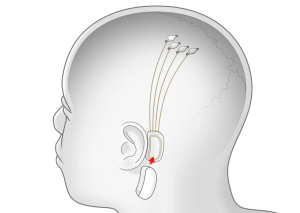Despite numerous claims of a similar nature in the past few years, capricious cad Elon Musk now says his Neuralink Corp. will within six months begin installing its coin-size computing brain implant into humans. On-again, off-again discussions with the FDA have apparently been on enough of an upswing for the company to confidently target a first run of human trials in that timeframe.
Although setbacks abound for this venture, including reports of startling fatality rates for its early-stage simian test subjects, Musk is already planning for implants in other parts of the human body, including an ocular implant for improving or altogether restoring vision as well as a spinal cord iteration that might help rehabilitate mental quality-of-living for those with paralysis.
“As miraculous as that may sound, we are confident that it is possible to restore full-body functionality to someone who has a severed spinal cord,” said Musk.
Of the consumer-focused brain implant, called BCI, at the core of Neuralink’s high-reaching, somewhat-shaky scheme, Musk remarked, “You are so used to being a de-facto cyborg . . . but if you’re interacting with your phone, you’re limited.”
This brain-computer relay interface would improve the faculties of those with debilitating conditions such as ALS or those working through the phases of post-stroke recovery by transmitting their thoughts in what has been dubbed “telepathic typing.”























